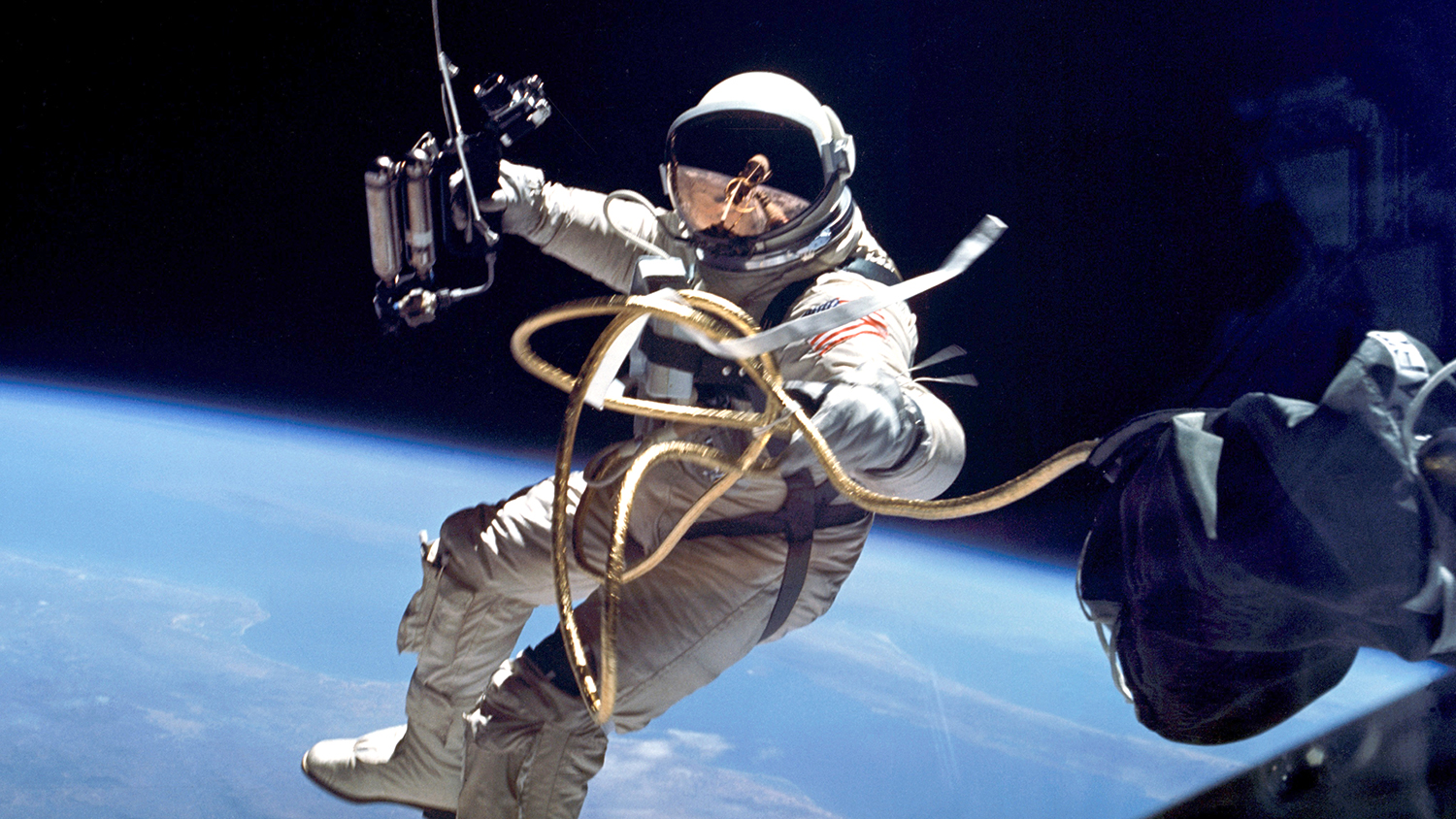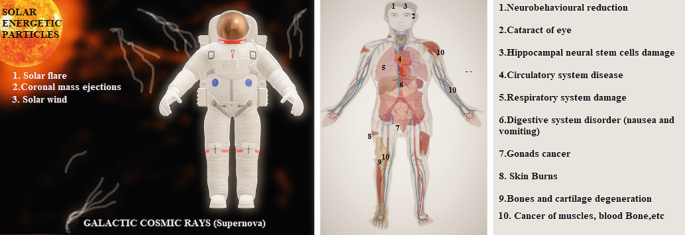Unusual Effects of Prolonged Space Travel on the Human Body
Space travel is an incredible feat of human achievement, but the body undergoes significant changes when exposed to the harsh environment of space for prolonged periods. These transformations, though fascinating, come with a range of potential health risks. From physiological alterations to psychological effects, space exploration presents unique challenges that scientists and astronauts continue to study and address. 
Understanding these effects is critical to advancing long-term human exploration beyond our planet.
The Microgravity Challenge
Microgravity is one of the most defining characteristics of space travel. Without Earth's gravitational pull, the human body adapts in unusual and sometimes harmful ways. One of the most visible consequences of microgravity is the loss of muscle mass and bone density.
On Earth, gravity constantly stimulates the muscles and bones to work against its force, keeping them strong.
In space, however, the absence of this force leads to:
- Muscle atrophy: Astronauts experience significant muscle loss, particularly in the legs, back, and neck. Without regular resistance, muscles weaken, making it difficult to readapt to Earth’s gravity upon return.
- Bone demineralization: Similar to the effects of osteoporosis, astronauts lose about 1-2% of their bone mass per month in space. This loss of bone density makes bones fragile and increases the risk of fractures upon return to Earth.
To combat these issues, astronauts must engage in daily exercise routines designed to simulate the gravitational forces they lack in space. This includes resistance training, treadmill running, and cycling. Yet, despite these measures, complete prevention remains elusive, posing a significant concern for longer missions such as those to Mars or beyond.
Fluid Redistribution and its Consequences
The shift in bodily fluids is another profound effect of space travel. On Earth, gravity helps distribute fluids throughout the body, keeping them primarily in the lower extremities. 
In space, the lack of gravity causes fluids to migrate upward, leading to noticeable changes such as:
- Facial puffiness: The upward shift of fluids results in a puffy face, a common symptom among astronauts. While not particularly harmful, it can cause discomfort.
- Increased intracranial pressure: The fluid redistribution also affects the brain and eyes. A notable number of astronauts experience spaceflight-associated neuro-ocular syndrome (SANS), which causes blurred vision, flattening of the eyeball, and changes to the optic nerve. This is a significant concern, as the long-term effects on vision remain under study.
This fluid shift can also impact the cardiovascular system. On Earth, blood naturally pools in the lower body due to gravity. However, in space, the heart initially pumps more blood to the upper body, increasing blood volume in the chest and head. Over time, the body adjusts by reducing the amount of fluid in circulation, which can lead to dehydration and a weakened immune response.
This cardiovascular strain is another factor that astronauts must monitor closely during and after their missions.
Impact on the Vestibular System
One of the most disorienting effects of space travel is its impact on the vestibular system, which controls balance and spatial orientation.
On Earth, gravity helps the inner ear sense motion and maintain balance. In space, without gravity, the vestibular system struggles to function properly, leading to:
- Space motion sickness: Many astronauts experience nausea, dizziness, and disorientation during the first few days of their mission. This condition, akin to seasickness, can impair an astronaut’s ability to work efficiently and poses a challenge to mission planning.
- Altered spatial perception: Astronauts often report difficulty judging distances or determining up from down in the microgravity environment. This altered perception may affect their performance during tasks, particularly those requiring precision and coordination.
Interestingly, upon returning to Earth, astronauts frequently face the opposite problem. Their bodies must readjust to gravity, and they may experience balance issues, vertigo, and coordination problems for days or weeks after landing.
The long-term effects of these changes are still being studied, with scientists looking for ways to improve adaptation to different gravitational environments.
Psychological and Cognitive Effects
The physical challenges of space travel are well-documented, but the psychological and cognitive impacts are equally significant. Long-duration space missions expose astronauts to isolation, confinement, and the stress of being far from home, which can lead to a range of mental health issues.
Some of the key psychological effects include:
- Sleep disruption: The absence of a natural day-night cycle in space affects astronauts’ circadian rhythms, making it difficult to maintain regular sleep patterns. Sleep deprivation can lead to fatigue, irritability, and impaired cognitive function, increasing the likelihood of errors during critical tasks.
- Stress and anxiety: Prolonged isolation and the inherent dangers of space travel contribute to heightened stress levels. Astronauts are trained to manage these emotions, but the extended periods away from Earth can exacerbate feelings of loneliness and anxiety.
- Cognitive decline: Studies have shown that prolonged space travel may impact an astronaut's ability to think clearly, solve problems, and process information quickly. Whether due to stress, sleep deprivation, or other factors, cognitive decline poses a serious risk, particularly on missions requiring high levels of focus and precision.
The psychological toll of space travel is being actively studied by agencies like NASA, which employs various countermeasures, including virtual reality tools to simulate interaction with family and friends, structured schedules to combat isolation, and mental health support from Earth.
Space travel has revolutionized our understanding of both the cosmos and the human body, but the unusual effects of prolonged exposure to space environments come with significant challenges. From muscle and bone loss to psychological and cognitive stress, these changes must be understood and mitigated as humans look to extend their presence beyond low-Earth orbit.
Future missions to the Moon, Mars, and beyond will require not only advanced spacecraft and technology but also innovative strategies to protect astronauts' physical and mental well-being. As scientists and researchers continue to study these effects, solutions will emerge that can enhance human resilience in the final frontier.
Sources:
- https://www.nasa.gov/feature/five-ways-space-travel-affects-the-human-body
- https://www.ncbi.nlm.nih.gov/pmc/articles/PMC6941658/
- https://www.ncbi.nlm.nih.gov/pmc/articles/PMC5492069/
- https://www.nationalgeographic.com/science/article/space-travel-affects-human-body
- https://pubmed.ncbi.nlm.nih.gov/31161062/
- https://www.nature.com/articles/s41591-019-0602-2













![[LIVE] Engage2Earn: Save our PBS from Trump](https://cdn.bulbapp.io/frontend/images/c23a1a05-c831-4c66-a1d1-96b700ef0450/1)




















































